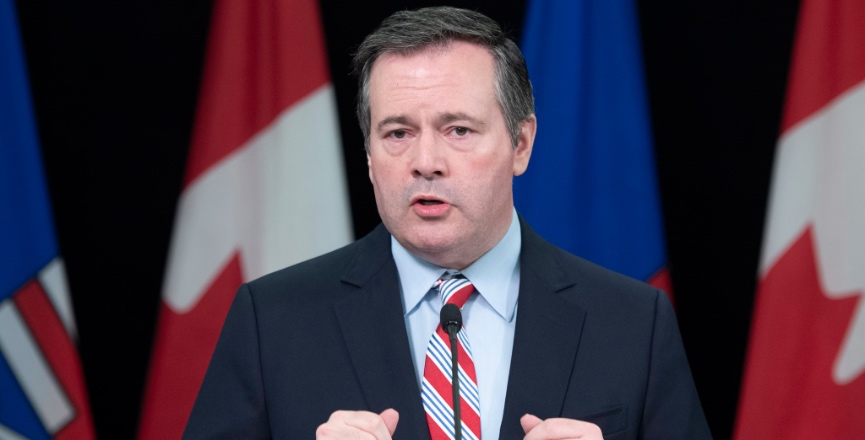In the coming battle to shape Canada’s post-pandemic economy, right-wing forces will likely be led by Alberta Premier Jason Kenney, the closest thing we have to Donald Trump.
So it’s worth examining the fiercely pro-corporate economic model endorsed by Kenney — a self-styled populist who specializes in stirring up resentment and division — and see why we should go to great lengths to avoid it in the future.
Of course, we’re used to the mantra that the Alberta economy has been a roaring success. True, it’s been a “have” province, lecturing the rest of us on how to live within our means — a task that would have been easier if we’d all been born with abundant quantities of one of the world’s most valuable commodities under our soil.
But the real measure of success is what one makes of the hand one is dealt. And, by that measure, Alberta has been a train wreck.
Its political leaders, by allowing corporate interests to design the economy to their own benefit, have squandered the province’s vast natural wealth, leaving Alberta’s citizens with a mere fraction of what they could be enjoying today, even with the downturn in world oil prices.
Over the past two decades, more than half a trillion dollars — $528 billion — has been siphoned off by foreign shareholders who have ended up owning every major development in the oilsands, with only two small enterprises under Canadian ownership, according to a new study by University of Alberta political economist Gordon Laxer and Calgary researcher Regan Boychuk.
While the usual narrative has it that oil companies invested billions of dollars of capital to develop the oilsands, in truth, they’ve done nothing of the sort. All the investment that has gone into the oilsands over the past 23 years has effectively been paid for by the people of Alberta.
“Industry didn’t pay those costs. Albertans did,” says the report, soon to be released by the University of Alberta’s Parkland Institute and the Council of Canadians.
That’s because the oil companies have been operating under an extraordinarily generous regime — paying a mere one per cent royalty, and only after all costs have been deducted.
It’s a royalty regime that the companies designed themselves, the report notes.
This exceptionally favourable arrangement, begun under Premier Ralph Klein in the 1990s, was inspired by the pro-corporate revolution launched by Britain’s Margaret Thatcher and America’s Ronald Reagan.
It was a sharp departure from how the province had been operating. In the 1980s, premier Peter Lougheed had been much tougher on the oil industry, forcing it to pay a royalty of 25 per cent and even creating an energy company owned in part by the public.
Klein’s sweetheart deal for the oilsands, which remains in force today under Kenney, has amounted to a complete capitulation to Big Oil.
On the industry’s behalf, the province has also resisted action on climate change, despite producing one of the world’s dirtiest oils. And it’s allowed Big Oil to destroy Alberta’s environment, leaving a clean-up bill estimated at $260 billion, without clear evidence of who will pay for it. (Clue: so far, the province has collected only a paltry $1.6 billion from the companies to cover clean-up costs.)
Defenders of Alberta’s oil establishment hate it when critics mention Norway — understandably.
This annoying little country, also endowed with generous oil reserves and a small population, has shown how to throw a punch when it comes to dealing with Big Oil, ensuring the lion’s share of the nation’s oil wealth benefits its citizens.
By imposing a tough tax regime on oil companies (which always threaten to depart, but never actually leave the negotiating table) and setting up its own publicly owned oil company (now diversified into wind and solar power), Norway has ended up with a heritage fund worth about $1 trillion more than Alberta’s fund.
Unless we’re indifferent to money, Alberta’s management of its economy should be seen as nothing short of a disaster — something to keep in mind as Kenney and his followers push for maintaining the pro-corporate model in the post-pandemic order.
They’ll make their case with a huge megaphone and a lot of swagger, but let’s demand they explain why they left a trillion dollars on the table, and little Norway didn’t.




